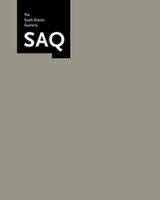
Dialogics of the Oppressed was first published in 1992. Minnesota Archive Editions uses digital technology to make long-unavailable books once again accessible, and are published unaltered from the original University of Minnesota Press editions.
Formulated within and against the context of Russian formalism that became the backbone of semiotics, Mikhail Bakhtin's work has enabled contemporary critical theories to return to specific sociopolitical and historical moments that had been closed off by formalist abstractions. In Dialogics of the Oppressed, Peter Hitchcock looks through the lens of Bakhtin's theory of dialogism for an analysis of subaltern writing. Rather than assume an integral "subaltern subject" as the object of analysis, Hitchcock - in case studies of four global feminists, Nawal el Saadawi, Pat Barker, Zhang Jie, and Agnes Smedley - emphasizes the cultural agency of the subaltern and shows the political implications this agency might have for literary analysis in general and cultural studies in particular.
"Presents a provocative set of readings-through the Bakhtinian model of dialogism-of texts by four women writers of the twentieth century. . . instructive and compelling." Barbara Harlow, University of Texas
Dialogics of the Oppressed argues from an internationalistic perspective to underline that the heterogeneity of dialogic feminism itself constitutes a significant array of discursive resistance to the hegemony of disciplines and so-called area studies operative in the metropolitan First World academy. Hitchcock demonstrates through dialogic analyses of the writings of these four feminists that a form of multicultural materialism can itself disrupt the restrictive logics and practices of literary studies in the Western academy, and that indeed, there is a counterlogic in the culture of the subaltern. Hitchcock's underlying objective is the development of a powerful critique of the epistemological bases of the academy that marginalize and devalorize certain cultural productions and subjects, as well as a cognitive mapping of the politics of pedagogy in current transformations of disciplinarity.
Peter Hitchcock is professor of English at Baruch College of the City University of New York. He is the author of Working-Class Fiction in Theory and Practice and has published essays on radical writing, multiculturalism, film, and Third World fiction.

Exploring both the dynamism of Bakhtin versus “Bakhtin” and the dynamics of “possible Bakhtins,” the contributors tackle this theorist’s range of shifting shapes, from the carnival-messianistic and the chronotopic, through the philosophic and the ideologic, to the “applied Bakhtin” of the social sciences. Bakhtin’s texts are examined in the context of work by such disparate figures as Ernst Cassirer and Rudolph Rocker, while various aspects of the academic “Bakhtin industry” are examined, including the “will to mythology by anthology” and the inequities of a world market in ideas exemplified by the resource gap between Russian and Western scholarship. The “state of the archive” is assessed by both UK Bakhtin Centre Director David Shepherd and Russian Bakhtin Archivist Nikolai Pan’kov. Throughout the issue, which is framed by Peter Hitchcock’s introductory polemics and Michael Holquist’s afterword, author and archive are continually deconstructed and reconstructed.
Contributors. Robert Barsky, Rachel Falconer, Maroussia Hadjukowski-Ahmed, Ken Hirschkop, Peter Hitchcock, Michael Holquist, Vitaly Makhlin, Nikolai Pan’kov, Brian Poole, David Shepherd, Galin Tihanov, Anthony Wall
READERS
Browse our collection.
PUBLISHERS
See BiblioVault's publisher services.
STUDENT SERVICES
Files for college accessibility offices.
UChicago Accessibility Resources
home | accessibility | search | about | contact us
BiblioVault ® 2001 - 2024
The University of Chicago Press









